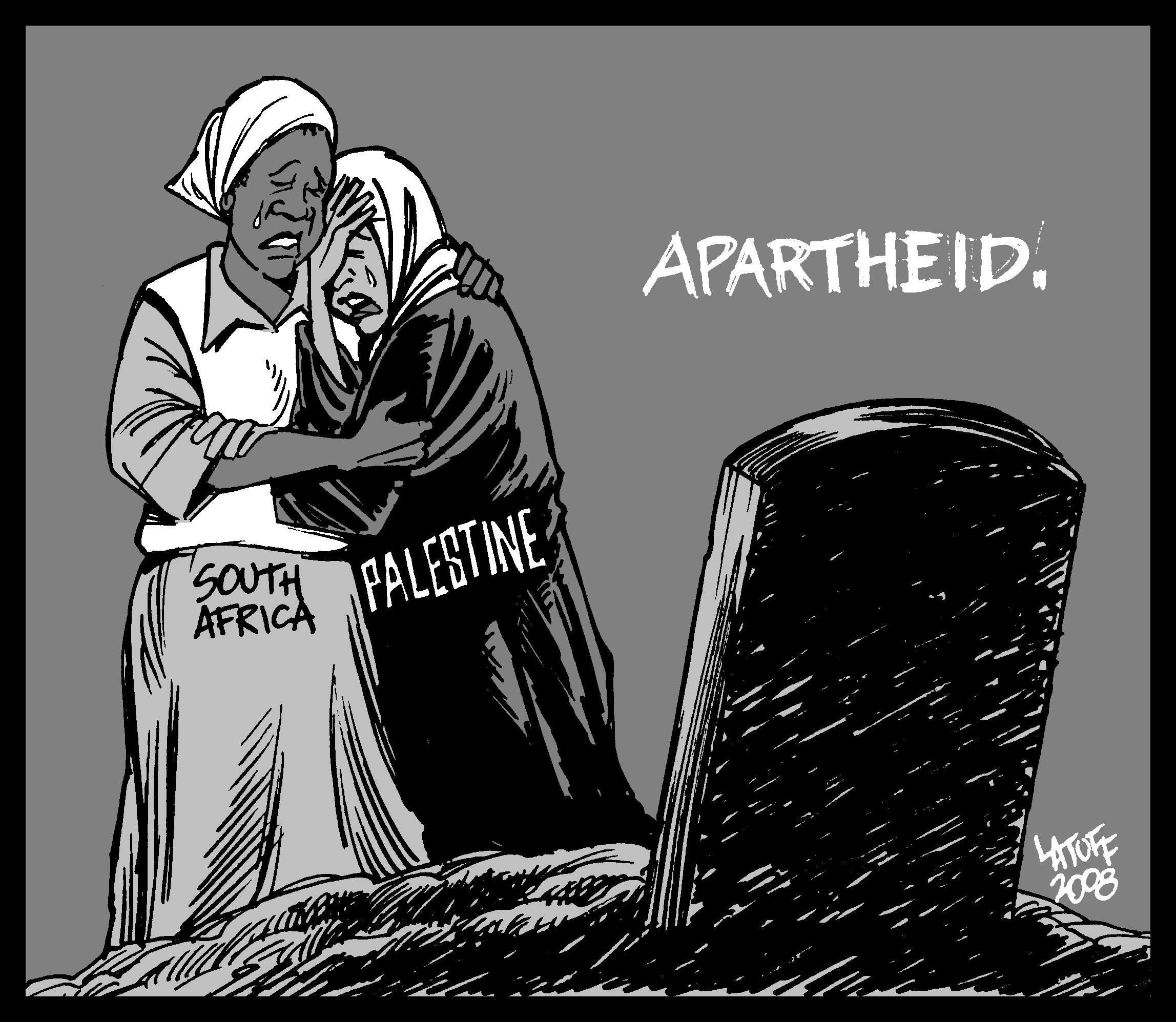Apartheid, Then and Now
The word is undeniably inflammatory. But by any definition, the subjugation of occupied Palestinians is apartheid.
 The South African jurist Richard Goldstone endured much unjustified abuse when he prepared a report that cataloged Israeli excesses during the brutal military operation in the Gaza Strip in 2008-2009 known as Operation Cast Lead. The abuse was heaped on him despite the truth of what he described, despite the balanced nature of a report that also described excesses committed by Israel's adversary Hamas, and despite Goldstone subsequently going out of his way to refute other accusations against Israel, relevant to the Gaza operation, that he believed were unjustified. Goldstone gives every indication of being a decent and fair man.
The South African jurist Richard Goldstone endured much unjustified abuse when he prepared a report that cataloged Israeli excesses during the brutal military operation in the Gaza Strip in 2008-2009 known as Operation Cast Lead. The abuse was heaped on him despite the truth of what he described, despite the balanced nature of a report that also described excesses committed by Israel's adversary Hamas, and despite Goldstone subsequently going out of his way to refute other accusations against Israel, relevant to the Gaza operation, that he believed were unjustified. Goldstone gives every indication of being a decent and fair man.
Given that experience, it is understandable that Goldstone would seize additional opportunities to visibly defend Israel, especially at a time when the Arab Spring and the heightened sensibilities regarding popular sovereignty or its absence have sharpened the regional focus on Israel's continued subjugation of Palestinians. It is also understandable that Goldstone, as a South African, would pick up on use of a term that played such a large role in his own country's history. And so he writes that applying the word apartheid to that subjugation of Palestinians is a “slander” against Israel.
Goldstone's op-ed includes a couple of important and valid observations. One is that “Jewish-Arab relations in Israel and the West Bank cannot be simplified to a narrative of Jewish discrimination. There is hostility and suspicion on both sides.” The other is that Arab citizens of Israel—i.e., the Israel of the 1967 boundaries—enjoy political and civil rights and are not subject to anything that could be described as apartheid.
But then there are the subjugated Palestinians in the occupied territories, whose situation Goldstone describes with understatement as “complex.” Earlier in his piece Goldstone refers to a definition of apartheid in the 1998 Rome Statute that established the International Criminal Court. The core of that definition is “an institutionalized regime of systematic oppression and domination by one racial group.” Even though these words describe exactly the current situation in the West Bank, Goldstone uses two strained arguments to contend that it does not. One is that the roadblocks, the walls, the restrictions on movement, and all the other aspects of the oppression and domination are a response to Israelis feeling threatened by terrorism. This is a dangerous and open-ended rationale, because almost every group of oppressors has used a threat from the oppressed group as justification for its own actions—at least as a public rationale, and often reflecting a genuinely felt threat. Many Afrikaners certainly felt threatened by the black majority in South Africa.
Goldstone's other argument is that the arrangement in the West Bank is not intended to be permanent; Israel, he says, has agreed “in concept” to a Palestinian state. But concepts do not displace realities. After forty-four years of the reality of Israeli occupation, how much longer will concepts suffice? Indeed, introducing the idea of Israeli concepts makes the comparison with South Africa all the more appropriate. Insofar as Israeli prime minister Netanyahu has given any indication of his concept of a Palestinian state, it looks a lot like the bantustans of South African apartheid. Underlying all this is the reality that Goldstone does not mention at all: the continued Israeli colonization of occupied territory that has now reached half a million settlers and is intended to create facts on the ground that will be the basis for making some version of the current arrangement permanent.
It is appropriate to look beyond the present to the future in discussing the use of the term apartheid, because in addition to describing the current situation it can fairly be used to assess the choices Israel must make when facing the reality of demographic trends. Over the long term, Israel cannot be a Jewish state and retain all the territory between the Mediterranean and the Jordan River and be free and democratic. If it chooses in favor of the first two, it will be an apartheid state indefinitely. In thinking about the future, we also should remember that apartheid in South Africa ended—not just as a “concept,” but as a reality. But Israel has still not produced an F. W. de Klerk (and the Palestinians have not produced a Nelson Mandela).
Apartheid has such significance in the history of South Africa—and because of the importance of that experience, in the history of human oppression generally—that it is understandable if a South African would be sparing in applying the term to other situations. Maybe out of respect to South Africa, any discussion of the Israeli-Palestinian situation could eschew the term and instead say “an institutionalized regime of systematic oppression and domination by one racial group.” But that's twelve words rather than one. And if the one word fits—as it certainly does in this instance—it will be used, and appropriately so.
Image: Carlos Latuff
